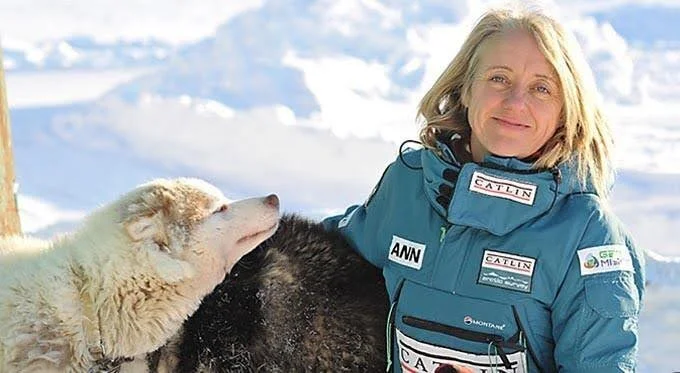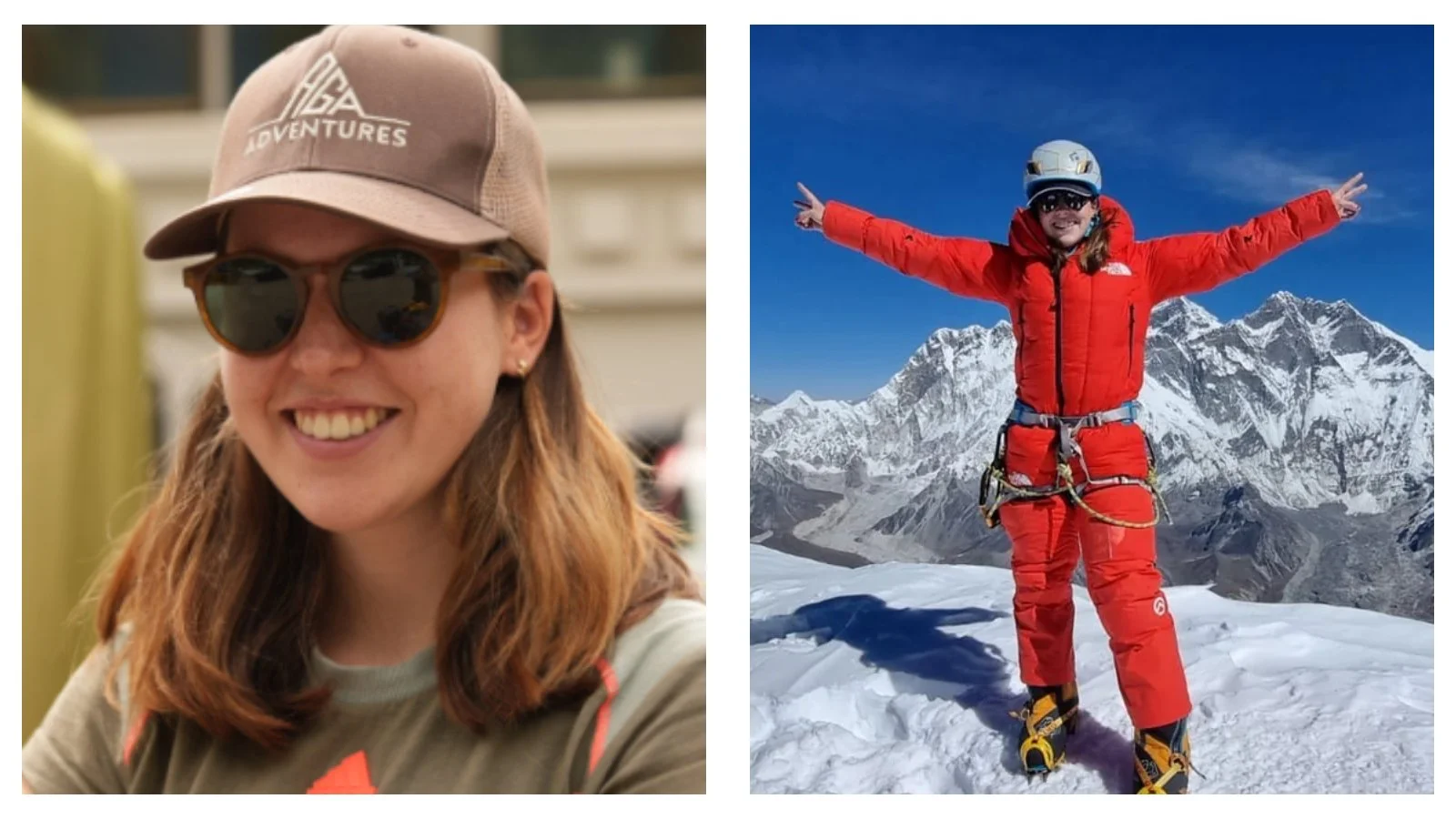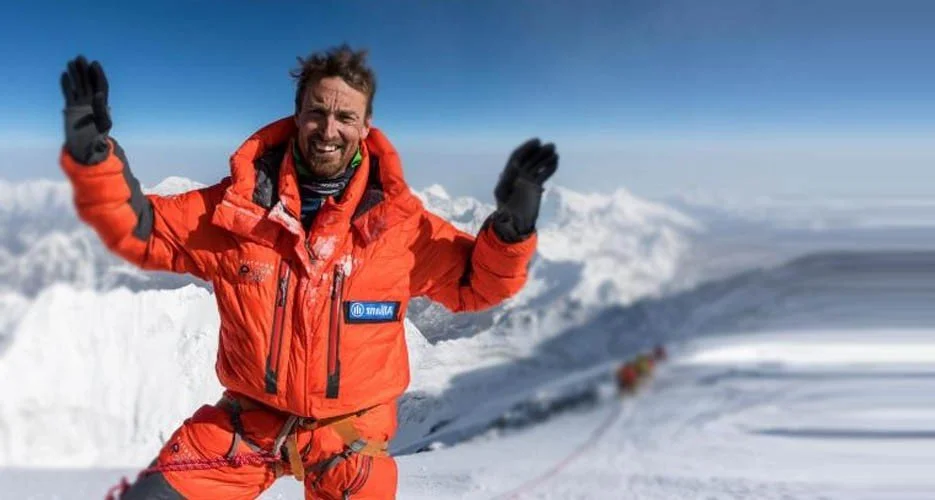What leading teams on the edge of the world taught Ann Daniels about true resilience
Ann Daniels is a renowned female inspirational speaker, polar explorer and adventure leader, who has repeatedly pushed the boundaries of human possibility in some of the most extreme environments on Earth.
Her expeditions across icy deserts and remote Arctic regions have taught her lessons of courage, resilience, and leadership few ever encounter firsthand.
From motivating teams when every fibre of one’s body wants to give in, to using failure as fuel and turning uncertainty into opportunity, her insights transcend the extreme sports world.
Her voice is especially powerful for businesses facing unprecedented disruption, where mindset and values are more crucial than ever.
In this exclusive interview with Female Motivational Speakers Agency, Ann Daniels shares what it means to lead under pressure, how to build mental resilience, and why true leadership often starts with embracing vulnerability.
Q: Many business leaders struggle with keeping their workforce motivated, particularly during challenging times. From your perspective, what strategies are most effective in sustaining team morale and performance?
Ann Daniels: “I think it’s important to keep your team motivated, and you have to remember some key things.
“How you are with your team - your behaviour - you yourself will have an effect on your team.
“So when you’re feeling that everything is impossible and it’s downhill, feel it, we’re normal human beings. But then check it, put your game face on if you will, and think of all the positivity that you can and portray yourself in that way to your team, because your mood will affect them.
“And equally, their mood affects you, so that for me is really important. The other thing about your team is to remember that it’s your job to empower them and to give them a great environment to work in so that they can thrive and not be down.
“By that I mean trust them, let them know that they can come to you if they’ve got problems and you’re not going to judge them.
“Be supportive of them and actually just remember it’s about them, and if you support your whole team and help them to be the best that they can be, then as a team, that, to me, is when the magic happens.”
READ MORE: Adriana Brownlee: Youngest woman to conquer fourteen peaks on drive and determination
Q: The conversation around women in leadership has grown significantly in recent years, yet progress remains slow. How vital is it to continue encouraging women to step into leadership roles and pursue their ambitions?
Ann Daniels: “It’s hugely important to encourage women to lead and achieve.
“We’re just not there enough yet. Women are leading and they are achieving, but not enough.
“I think we don’t have the courage of our own convictions, we don’t believe in ourselves enough, so if you don’t encourage the women, they may not feel confident - and women have so much to give.
“We’re still underrepresented in sports, sponsorship, business, boardrooms, and politics.
“Women need to be encouraged, and we need more women out there. They need to be accepted more, we need to believe in ourselves more, and when we have an equal world, we’ll have a better, more successful world.”
Q: In your experience, how does diversity within teams - and leaders who actively embrace inclusion - translate into stronger outcomes for organisations?
Ann Daniels: “I think a diverse team is hugely important.
“The world is made of diverse people, and everybody is different. If you have a team with the same skills, the same skin colour, the same racial background, the same cultural background, you will always just do the same thing.
“If you have a mixed team of many different people, all those skills, all those ideas, they will make that team more powerful and make it perform better - and equality comes across the whole range. It just is for a better, more successful, happier world.
“Why do people think that it’s not? I just don’t even understand that. Diversity is powerful, it’s huge, and it is hugely important.”
YOU MAY ALSO LIKE: Kenton Cool on conquering summits and safeguarding the planet
Q: Resilience is often spoken about in both business and sport, but few truly understand how to build it. How do you personally develop mental resilience and sustain a healthy mindset under pressure?
Ann Daniels: “I build it just by practising things.
“When things go wrong, I will think about that. At first, I will always start with allowing my normal human emotions to come out, because I think that’s important.
“Then, when I’ve allowed that, I start to really think about what’s happened.
“For instance, on my first and only solo expedition to the North Pole, I wanted to get there as the first woman to do it solo.
“All the permits were removed from every expedition that year, so it completely failed. There was nothing I could do about it - no amount of positivity was getting me to the North Pole. It had failed.
“At the beginning, I was devastated. Then I began to think about it - really, what had happened?
“I’d had the most amazing journey on the Arctic Ocean on my own. I’d had five encounters with polar bears, which was just the most incredible experience. I had done that without really any experience, 15 years ago, no money, no experience, and it had stopped on day 21.
“It either had stopped because I may have been going to kill myself the next day because an awful thing would have happened, or I might have got to the Pole. But I can’t say it crushed my dreams because I don’t know what the next bit of the journey would be.
“I began to feel privileged and enjoy the journey and stop worrying about the fact I hadn’t achieved, and asked what I could do with this knowledge to make my future direction better.
“I used my failure to help me to be positive about the future. That’s part of resilience, because we’re going to fail small steps. Each time you do it, just think about the good things, the skills you’ve learnt, and go on to do something else. If you keep doing that, you will build resilience.
“Start from school age - if you fail one exam, fine, work harder and get another exam, or do something different. It is a step and a process.
“For me, resilience is about taking all those difficult challenges, owning them and then moving on, and thinking how fortunate you are to do them in the first place.”
Q: You’ve spent decades exploring some of the most remote and fragile environments on Earth. Can you share the most striking examples you’ve personally witnessed of global warming in action?
Ann Daniels: “Oh gosh, I’ve seen the shocking effects of global warming so many times.
“I was part of the Catlin Arctic Surveys. It was an expedition put together by Pen Hadow. He was the guy who ran it, and he asked me to pathfind on the expedition.
“This expedition was measuring the thickness of the North Pole ice cap. The scientists were expecting the thickness to be 1.9 metres or thereabouts. It was less than 1.5.
“On that expedition, we saw swathes of very thin ice, kilometres of it, open water everywhere - ice that I had never experienced when I first went to the Arctic in ’97, not that long ago. I was also involved in ocean acidification science, which is how the chemistry of our oceans is changing, and I’ve seen the results of that, which is traumatic.
“The warming of the oceans - particularly, for me, it’s the Arctic Ocean - the fact that it’s less salty because of the freshwater ice caps coming into it, it’s all affecting the minutiae of our oceans.
“I’ve seen plastic in the Arctic Ocean, a place that doesn’t have many communities that live right on the edge of it, and there’s tons of plastic in it. It’s horrific.
“Over 20 years, the change is huge. I know that the way we live our lives around the world affects those very ends of the Earth.
“If that doesn’t bother us, what happens at the ends of the world has a knock-on effect on the rest of the world. We’re all connected - with oceans, weather patterns.
“It has been an honour to see in one respect, but truly traumatic to see it.
“We have to do something about it and we have to make a difference. And I don’t mean just the politicians, which they do, the people that run the world, but equally, individually, we have to take ownership of our actions.
“We have to speak out, how we live our life, and make changes.
“Start with supermarkets and their plastic vegetables. I could go on forever. Why are we buying vegetables in plastic bags? If we stop buying it from the supermarkets, they won’t do it anymore. So we can make a difference, and we should.”
This exclusive interview with Ann Daniels was conducted by Megan Lupton of The Motivational Speakers Agency.
READ NEXT: From the Amazon to outer space: Sarah Begum on exploration, culture, and climate action



